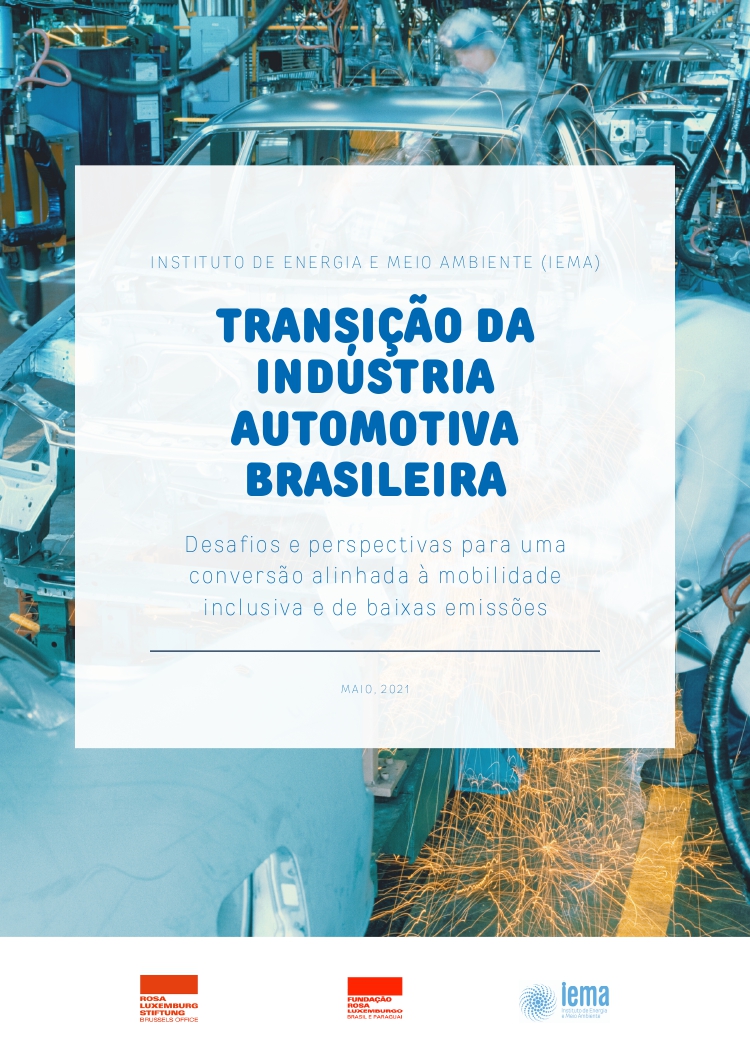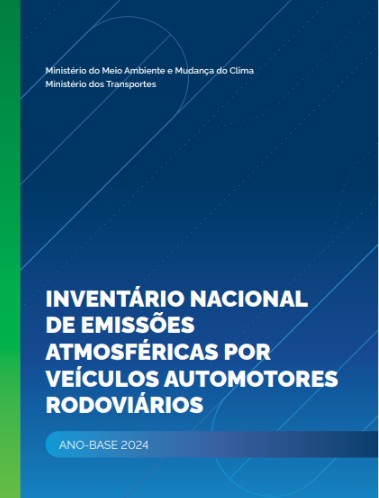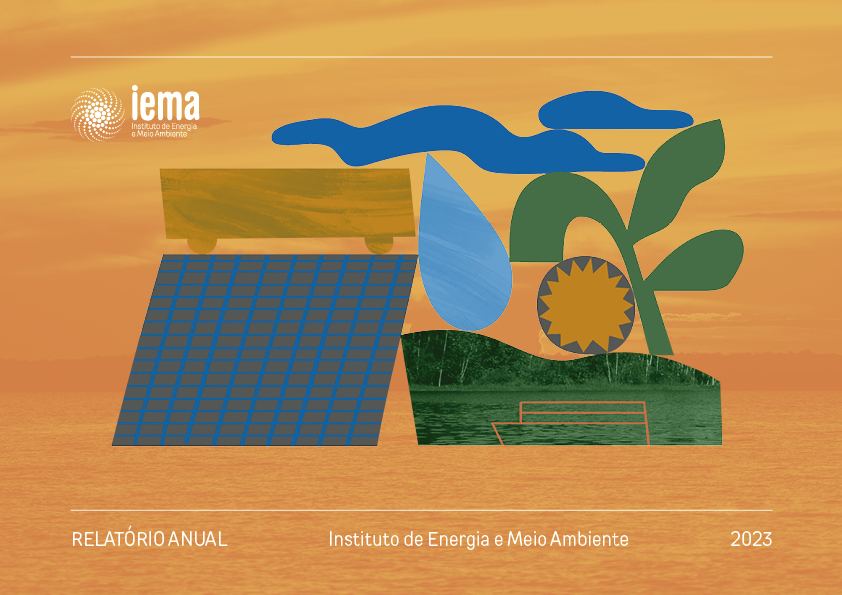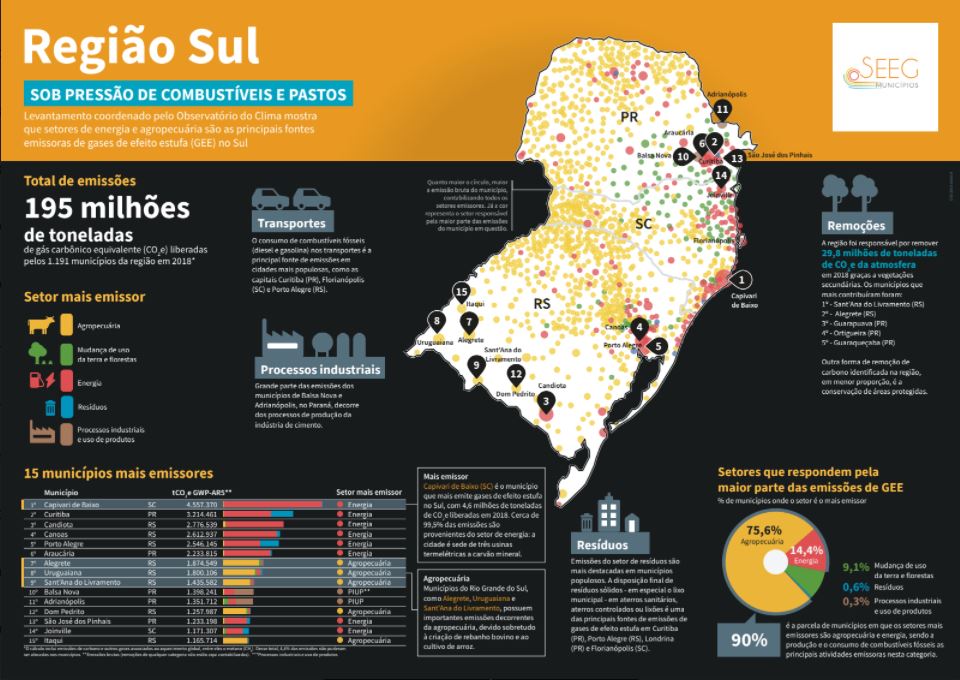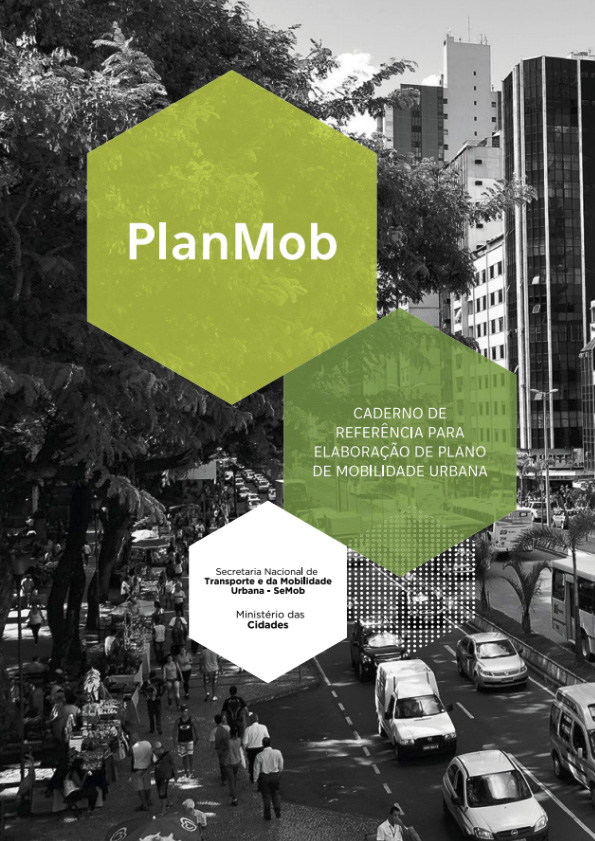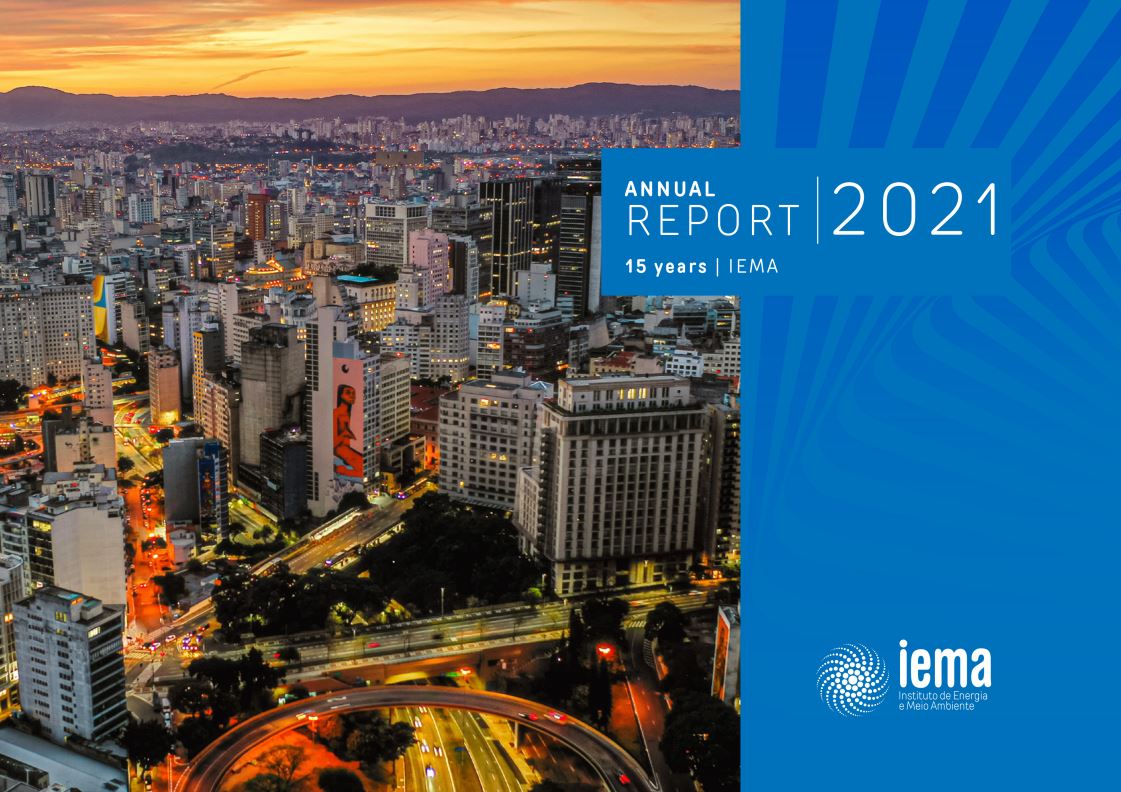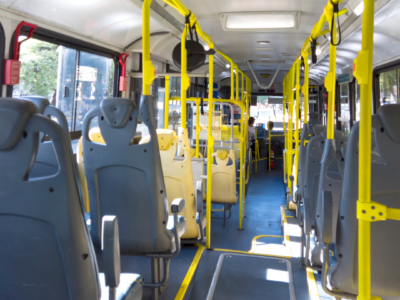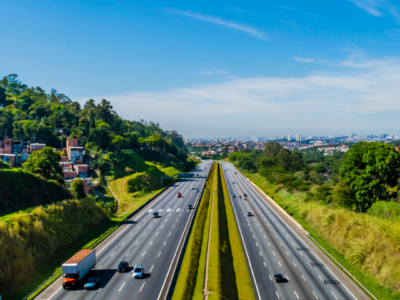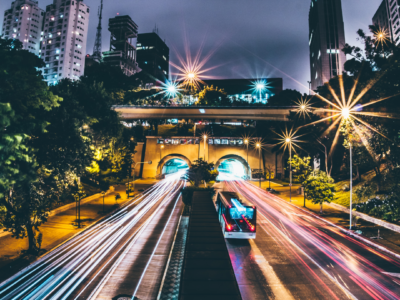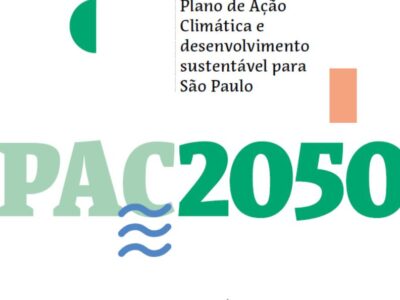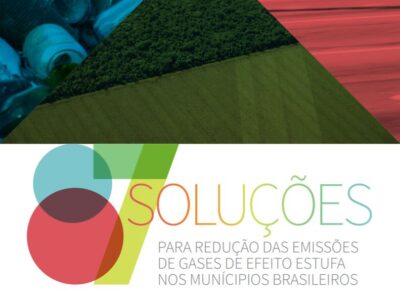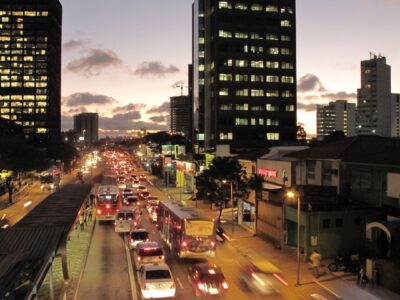The Instituto de Energia e Meio Ambiente (IEMA) is launching today (July 1) a new study about the Brazilian auto industry’s transition and the prospects for urban mobility. Entitled “Transition of the Brazilian auto industry: challenges and prospects for a conversion aligned with inclusive and low-emission mobility,” it analyzes possible problems arising, for example, from unemployment caused by the closure of factories in the country, something that is already being signaled with the current closure of production lines such as Ford, Mercedes, and Audi. The study, published in Portuguese and English, is part of an international work coordinated by the offices of the Rosa Luxemburg Foundation in São Paulo and Brussels. It will be part of a book with analyses on the sector in different countries — Slovakia, Italy, Hungary, Mexico, Czech Republic, and Serbia — where the auto sector stands out within industrial production and the generation of skilled jobs. Read the complete study.
“The study raised issues that generate warnings to think about the country’s development. If the paths of Brazilian industry and the digital transformation of the 21st century are not managed and guided with objectives for inclusive urban mobility and the reduction of socio-economic inequalities, the trend will be one of setbacks,” warned David Tsai, a researcher at IEMA and one of the authors of the study. According to the study carried out this year, the main risks are loss of jobs in the entire production chain of the sector; the continuation of the production of polluting cars; external dependence on the supply of electric vehicles; greater elitization of vehicles as a consumer good; and the widespread bankruptcy of the public transport system as we know it today, with the return of clandestine and unofficial transport.
“We seek to understand the transformations that the industry goes through in the face of the Brazilian economic situation, new digital technologies, and electrification, and what implications we can expect for society,” said André Luis Ferreira, IEMA’s CEO and another one of the authors of the study. According to the study, there is a lack of sufficient political will for the structural transformation of urban mobility to achieve a fundamental right of the citizen, which is the right to transport. Public transportation, for example, undergoes an unprecedented crisis, one of the main reasons being the exhaustion of the financing model for the operation of services, which is based on the payment of tariffs paid by users. A situation that was aggravated by the COVID-19 pandemic. The political agenda has not been able to address short-term emergency issues, and there are no plans for long-term issues.
The study defends a perception that the future of the auto industry, public transport, and their workers must be treated together. The technological development of vehicles focused on electrification, automation, and connectivity can contribute to the necessary reduction of emissions of pollutants and greenhouse gases. Still, alone it does not automatically present itself as a solution to face the unequal and unfair use of road space. “But an industry conversion, aligned with inclusive and low-emission mobility, cannot be expected to occur without external direction,” said Renato Boareto, a researcher and one of the study’s authors. “Mobility policies are needed,” he added. Structural improvements in cities are urgent, implementing urban environmental policies in an integrated manner, including improving air quality and mitigating greenhouse gases (GHGs).
The situation of inequality in cities may worsen if the country continues to prioritize individual transport over public transport and the newly emerged services based on information technology. The use of vehicles as a predominant means of transport can be expanded to more people. Still, the problems caused by their excess on the streets will grow proportionally. With the degradation of public transport, more marginalized people will face even worse accessibility issues. It is possible to change that course, but it will depend on firm signaling by a consistent policy of development of the country, where the principles of Mobility as a Right prevail, as well as the guarantee of public transport as a social and universal right, and a fair energy transition. “In the absence of public policies that safeguard transport as a fundamental right and means for the realization of the essential rights to the dignity of the people, the country will face more setbacks,” Tsai summarized.
Food for thought: summary of the study
Economic crisis, deindustrialization, and the greater elitization of vehicles
The country is experiencing a widespread economic crisis. It is going through a process of deindustrialization that stands out on the world stage. Cars have become more inaccessible in recent years because of falling income and rising prices. The sale of vehicles depends on the existence of buyers who may compromise a portion of their salaries for the installment payment of a car purchased via car loans. Therefore, there is a need for a certain degree of stability in employment and a level of wages that will enable purchases to be made. As it is already possible to notice from the profile of new licensed cars in the country, the trend is the predominance of higher value models with an increasing market share of medium SUVs aimed at higher-income buyers.
Jobs and electrification
The number of jobs in automakers decreases with the increasing automation of assembly lines. Holding jobs in the current reality of low production levels has proven challenging. Regarding the production of electric vehicles, a worldwide trend, the study pointed out that there are still no concrete expectations of an increase in the number of employees compared to the production of current vehicles with internal combustion engines. On the contrary, there may be a decrease in the number of workers per vehicle produced due, in part, to the smaller number of parts necessary for the assembly of an electric vehicle.
The electrification of vehicles is an excellent ally in reducing emissions of pollutants and greenhouse gases. However, it should be noted that its implementation at a non-paced speed in relation to the Brazilian production capacity and sustained by imports can generate even more unemployment and transfer of jobs to other countries. Part of that effect could be compensated by increasing vacancies in chassis assemblers and possibly electric bus bodies. It will be necessary to relocate workers from the auto industry to another sustainable chain.
Industry refurbishment
Brazil experienced its last major technological transformation with the introduction of flex vehicles. Today, it is faced with the electrification of mobility worldwide. However, there is a trend of a long continuity of the production of combustion vehicles in Brazil, given the socio-economic situation of the country and the absence of large movements in the Brazilian industry towards electrification. A probable scenario is a preference for the internally produced hybrid-ethanol car complemented with the electrification of the luxury segment via imports. In that case, any tax benefits for buying electric cars would favor only the small portion of people with a higher income.
In the case of buses, there is a demand for replacing diesel with electricity. However, there is still a lack of a national strategy for its implementation. According to the study, Brazil would be able to expand that market internationally if the historical influence of the Brazilian bus industry in neighboring countries is maintained. There is still a dispute in the country regarding the technological route of diesel replacement in buses with different proposals between chassis assemblers (batteries, biofuels, gas, hybrid). With the focus on zero-emission, the electrification of the fleet with batteries should prevail. However, not counting government stimuli for change, replacing diesel with electric buses may fail because the diesel bus industry is very well established.
Public transport
Using alternative energy sources and vehicle technologies instead of diesel buses can increase operating costs. Without a reformulation of the costing models of the systems, it further removes people from public transport, aggravating the current crisis. The study also pointed to a trend of complete disruption of the public transport system in the coming years. The risk is the return of clandestine and unofficial transport similar to the 1990s, as is already happening in Rio de Janeiro. In the general view, public policy instruments should be effectively applied and directed to increase the participation of public transport in urban transit and their industry in generating employment and income. A new business model is required for public transport.
New technologies
A technological race in the auto industry is underway in the world. The idea that in the future, vehicles will be electrified, autonomous, shared, connected, and equipped with software updated periodically is widely disseminated. Examples are possible partnerships between Hyundai, Apple and Uber, or General Motors and Microsoft. Automakers are preparing for a new market dynamic, with a large share of services, such as rental, subscription, and transport by applications. These changes will profoundly modify the urban mobility system, which will result in positive and negative externalities. One of the main effects is the emergence of services that compete mainly with public transport, known internationally as Mobility as a Service (MaaS). The authors argue that in Brazil, the concept of Mobility as a Right (MaaR) should be defended.
About the publication
The study was carried out between January and March 2021 through documentary research and interviews with representatives from the most diverse areas of the sector. The first part of the document briefly characterizes the Brazilian auto industry, focusing on the production of inputs for public transport. The second part is about the challenges and perspectives within the context of a desirable industry conversion aligned with low-emission inclusive mobility. The objective was to identify challenges that the industry will face so that it can contribute to inclusive and low-emission mobility by preserving, creating, and improving jobs.
It is noteworthy that the focal aspect of inclusive urban mobility and low emissions is the prioritization of public transport over individual private transport and the application of technologies with less environmental impact. The study is part of one of the objectives of IEMA: to promote inclusive urban mobility and low emissions of air pollutants and greenhouse gases. It figures within the line of action of the institute to evaluate public policies on energy transition in transport. Learn more about the topic at https://energiaeambiente.org.br/transicao-energetica-nos-transportes


